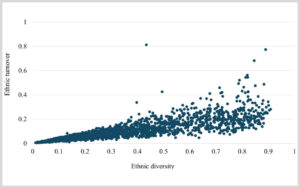Australia’s most powerful Jewish group has criticised Labor’s new “hate crimes” bill for not criminalising anti-Semitic slogans, saying the proposed legislation does not go far enough.
Peter Wertheim, co-chief executive for peak body for Jewish Australians the Executive Council for Australian Jewry (ECAJ), said the Criminal Code Amendment (Hate Crimes) Bill 2024 would not stop threats and slurs.
“The legislative reforms on hate speech announced by the government today are a step in the right direction but still fall short of the reforms which are needed,” Mr Wertheim said.
“Criminal prosecutions will still not be possible for the kind of ugly and menacing behaviour that occurred in October 2023 on the forecourt of the Sydney Opera House when protesters chanted ‘F**k the Jews’ and other grossly anti-Semitic slogans.
“Nor will it be possible to prosecute hate preachers who have called for a ‘final solution’ against ‘the Jews’, and described Jews collectively as innately ‘bloodthirsty’, ‘treacherous’, ‘criminals’ and ‘monsters’.
“Hopefully the Senate inquiry into the new Bill will highlight these deficiencies and lead to further reforms. What our community has experienced over the last 12 months should never be allowed to happen again.”

The bill, introduced by Attorney-General Mark Dreyfus, who is Jewish, on Thursday, was expected to criminalise “vilification” and “hate speech” but instead strengthened existing laws and created new offences for threatening the use of force or violence.
It will make it a criminal offence where the person is reckless as to whether the force or violence urged against a group will occur, and remove the existing defence for acts done in good faith.
The bill also amends federal laws criminalising the Nazi salute and the public display of Nazi and terrorist organisation symbols, adding “sexual orientation, gender identity and intersex status” to list of protected groups.
Mr Dreyfus introduced a second set of legislation on Thursday outlawing doxxing, the Privacy and Other Legislation Amendment Bill 2024, which was applauded by the ECAJ.
“The new anti-doxxing legislation is very welcome, and is in line with the calls made by the Executive Council of Australian Jewry since February for both criminal penalties and civil redress to be available against this pernicious practice. The new anti-doxing laws will apply prospectively,” Mr Wertheim said.
“Those who maliciously disclosed the personal details of 600 Jewish artists, musicians and writers earlier this year and made them the targets of death threats and discrimination at work will have to be dealt with under the existing law, which was not designed specifically to address this kind of behaviour. We needed this anti-doxxing legislation long ago.”
The privacy bill will impose a maximum penalty of six years’ imprisonment for the malicious use of personal data, and seven years if a person or group is targeted because of their race, religion, sex, sexual orientation, gender identity, intersex status, disability, nationality or national or ethnic origin.
The legislation was fast-tracked at the request of Prime Minister Anthony Albanese after the Jewish members of a WhatsApp group had their names and details leaked by anti-Zionist activists earlier this year.
The bill will create new criminal offences targeting doxxing, defined by the Attorney-General in his speech as “the release of personal data in a manner that is menacing or harassing”.
Mr Dreyfus said on Thursday: “Doxxing is a damaging form of abuse that can affect all Australians but is often used against women in the context of domestic and family violence.
“The creation of this offence also responds to a recent, shocking incident of a group who were targeted with doxxing on the basis of their religion.”






















